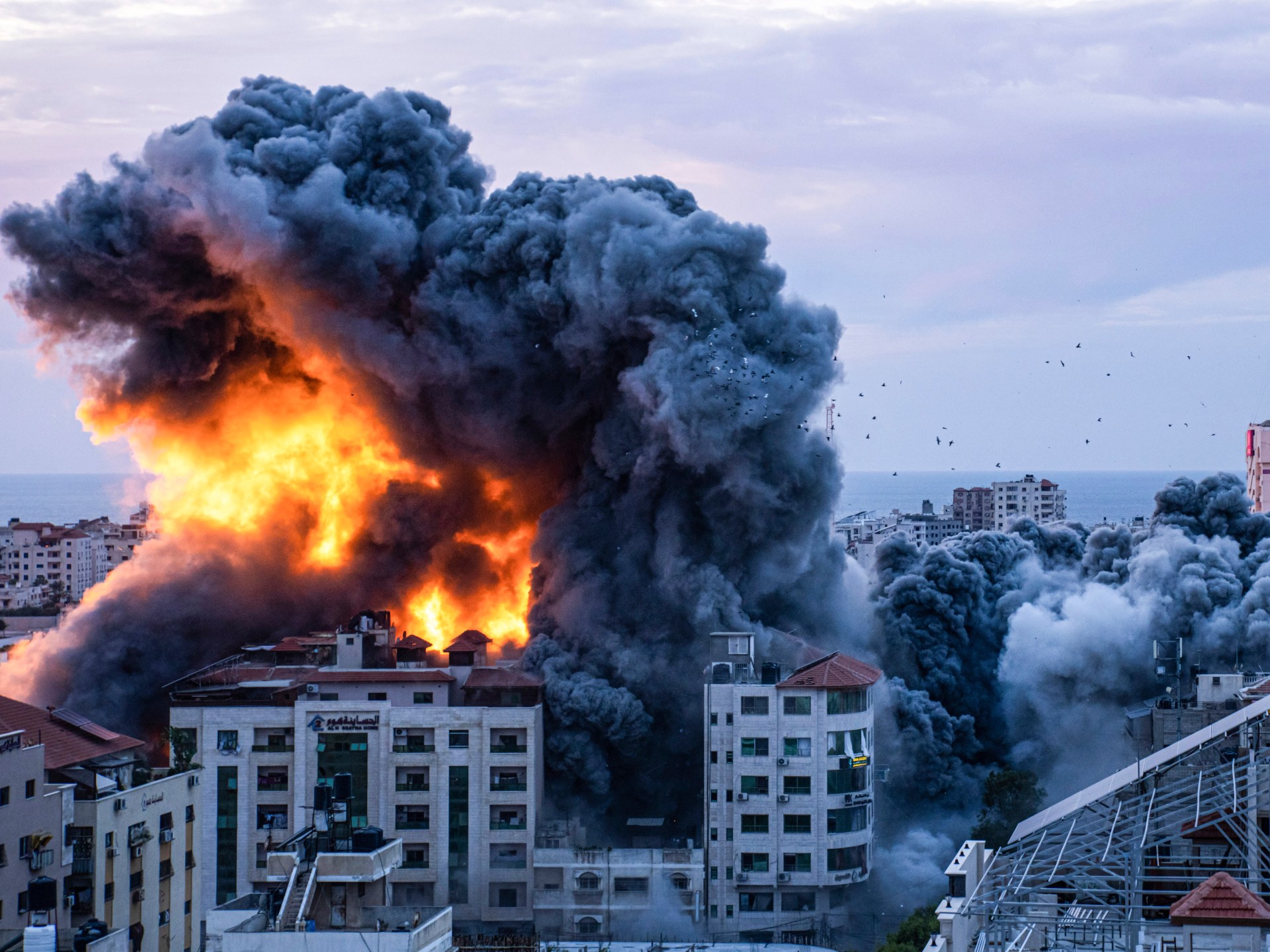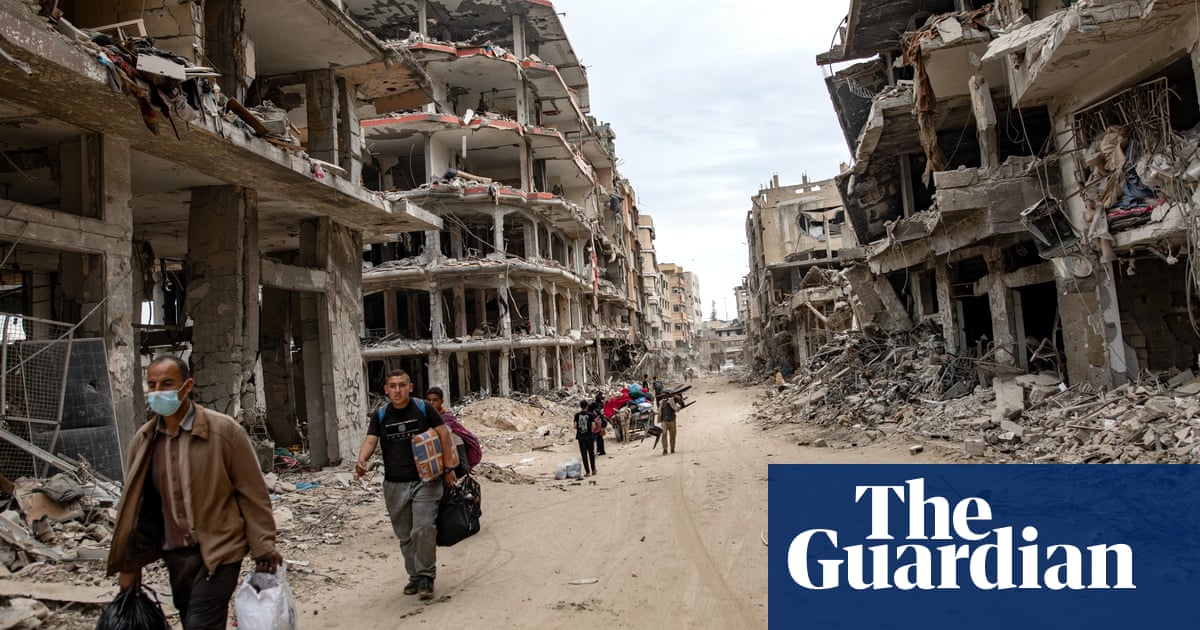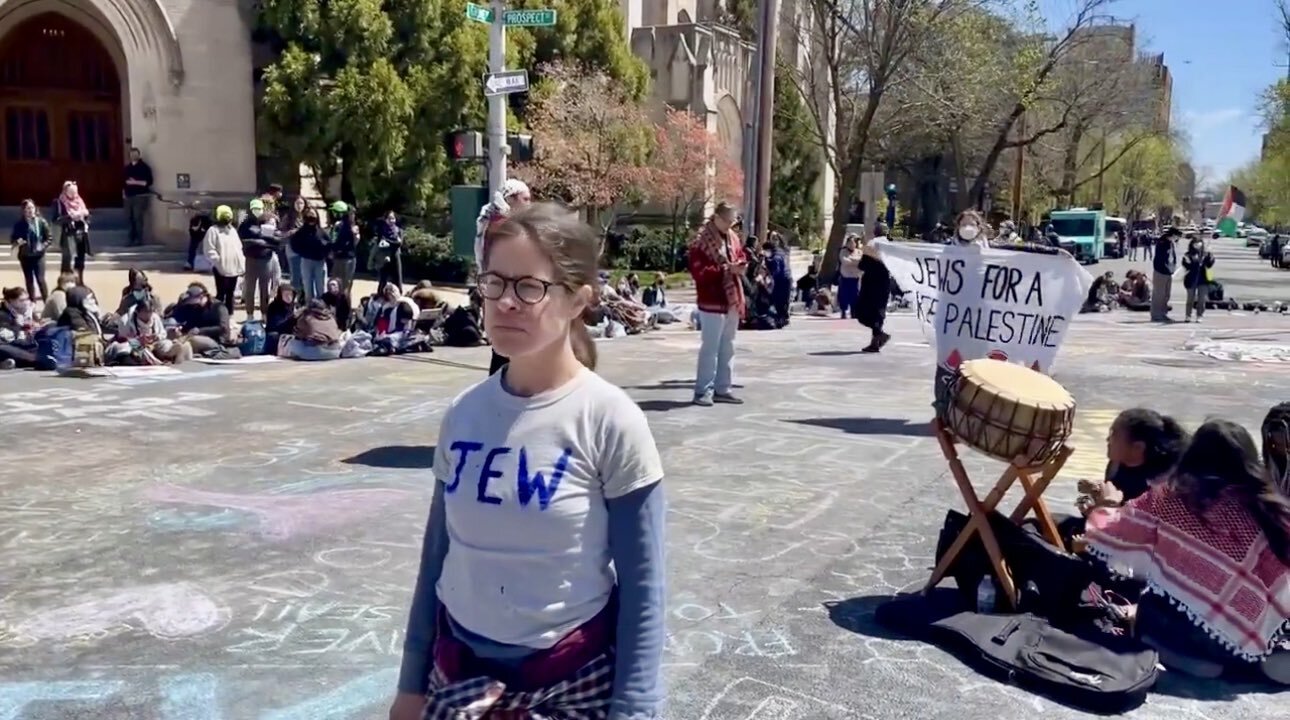Shut the fukk up
Israel-Palestine escalation updates: Gaza under bombardment
These are the updates for the escalation between Palestinian fighters and Israel military on Saturday, October 7, 2023.www.aljazeera.com
Was gonna post Twitter links..but I see a lot of videos with bodies
Nah..
I feel for all the civilians who are going to die on both sides

You are using an out of date browser. It may not display this or other websites correctly.
You should upgrade or use an alternative browser.
You should upgrade or use an alternative browser.
Israel–Hamas War: 10/7/2023 - Present
- Thread starter TELL ME YA CHEESIN FAM?
- Start date
More options
Who Replied?UnQuantized
Superstar
You are at war, how can you be so naive

TrifeGod
Chasing The Dragon
damnnnnnnnn twitter rly doesnt mind these videos huh
ucanthandlethetruth
Failure is not a option
Hate is the cousin of stupidity...flawless execution by Dj Khaled n nem

celebrating the death of violent colonialist cacs is a sign that society is progressing
DIDNT WATCH THE VID
AND COULD TWO shytS ABOUT ISRAEL
BUT ITS STARTLING WE'RE AT A POINT
IN SOCIETY WHERE PPL ARE OPENLY
CELEBRATING DEATH AND SNUFF FILMS.
LIFE HAS REALLY BECOME GTA.
Rev Leon Lonnie Love
damned mine eyes, DAMNED mine eyes!!
The positive outlook in such a bleak situationI think he lived...it was just dirt.

mann say then the dream u had after u watched it.... u literally hear sirens..... and its a flash of white lightThis scene scared the shyt out of me when I first watched the movie back in the day
ReasonableMatic
................................
Dominican Republic just applied for full CARICOM membership, but should NEVER be allowed full membership.
They’d just be the arm of the United States of lsrael at the table.
That’s on top of the fact that they’re actively imposing a Caribbean-style Apartheid on Haitians as we speak.
Based on lsraeli ideology, military training, arms and technology.#FreeHaiti
Another example why countries with ties to Israel should NOT be trusted.
Shame on Vietnam, with the history that it has too SMH
aqualung
I wear a crown of curls.
Thanks for your service.***edit***
I noticed a sad dap and wanted to add better context to my anecdotes, everybody in my platoon survived the year. Only a handful of Purple Hearts...
Everyone I still talk to laughed about it then, and still laughs about it now... Everybody just has leg/back pain, headaches, and may possibly develop CTE from all the concussions. It’s over now we don’t take it too seriously or personally, if you want to laugh at it too.
The experience sounds terrifying.
I have had enough internet for now, I think.
From one vet to another, I
It’s fukked up but that’s exactly how I felt when the ASV behind me got blown up, when the RG-33 in front of me got blown up, and a route clearance remote mine clearing tank got flipped lol.
Everything is routine and normal, and all of a sudden it’s not.
Then you think back like“the fukk we fall for that dumb ass bullshyt?!”
We saw what we thought were the regular plain clothes (adidas track suits) police directing traffic with duty AK’s slung on their backs. They diverted our convoy just off the road so we could avoid the traffic jam. Two vehicles go by just fine then “KA-WHAM” the ASV is nose down in a crater cussing everything out on the radio. The dust cleared and track suit dudes were gone.
Let another route clearance truck lead us, EOD, and a couple of wreckers, at night, to go rescue another route clearance patrol that had lost too many trucks to IED’s and didn’t have the resources to recover. We came to a fork in the road that eventually rejoined the original dirt highway. We ask which side the lead had cleared that morning (two patrols go out to clear night and day). RC lead says “we cleared left so it should be good…”. That was NOT good at all. The pressure plate was offset so when started going forward “KA-WHAM!” . The truck in front of mine is in a deep ass crater. How we look limping to the route clearance we were supposed to rescue?!
shyt is absolutely on some looney tunes, Wiley coyote type of timing lol.
We only had one dismount in our task force die from touching something he wasn’t supposed to. You really can’t be fukking around with shyt, ESPECIALLY if it looks out of place. Dude in the OP video was dumb AF for even thinking of messing with that flag. The squad in the other video should have known better too. Either shoot that shyt until it blows up or there’s nothing left, or call EOD to blow it up with a robot smh. In hindsight it’s always something that should have had you worried enough to avoid whatever happened.
***edit***
I noticed a sad dap and wanted to add better context to my anecdotes, everybody in my platoon survived the year. Only a handful of Purple Hearts were earned due to various IED blasts while on the road, which is miraculous considering we were called outside the wire at least once a day for for like 90% of the year.
Everyone I still talk to laughed about it then, and still laughs about it now. The MRAP’s were games changers in survivability and the ASV was extremely lucky that it’s hull wasn’t penetrated. Everybody just has leg/back pain, headaches, and may possibly develop CTE from all the concussions. It’s over now we don’t take it too seriously or personally, if you want to laugh at it too.
 your sacrifice and your service. Fortunately, I wasn't outside the wire but I have the utmost respect for ppl who were
your sacrifice and your service. Fortunately, I wasn't outside the wire but I have the utmost respect for ppl who werePull Up the Roots
Breakfast for dinner.

Israel still has no proof of Unrwa terrorist claims – but damage to aid agency is done
Inquiry has not backed up allegations of ties to Hamas and Islamic Jihad, which led to loss of $450m as people died in droves
Unsupported Israeli allegations about Unrwa links to terrorism led major donors to cut $450m in funding to the main humanitarian agency working in Gaza at a time when people there were dying in droves.
Three months later, the situation has only worsened with the onset of a human-made famine on top of the bombing, the collapse of healthcare, the lack of water and a rise in epidemics. And despite a rigorous inquiry by the former French foreign minister Catherine Colonna, supported by three well-respected research institutes, there is still no evidence for the claim that significant numbers of Unrwa employees have Hamas or Islamic Jihad ties.
There is a separate review under way into specific claims Unrwa employees took part in the 7 October attack but that investigation is still not complete, UN officials say. The last time there was a progress report, however, Israel was still withholding cooperation.
The Colonna inquiry, which is a broader assessment of Unrwa neutrality, wrote to the Israeli authorities in March and then again in April asking for names and evidence behind Israeli claims of Hamas and Islamic Jihad ties.
Arguably, Israel did not need to cooperate as Unrwa’s donors proved themselves to be all too eager to cut off funding without seeing any evidence.
Most of the big country donors have since resumed the flow of funds. The UK has held back and Germany is only funding Unrwa operations outside Gaza. Although the trigger for the cut in funding was the allegations about 7 October, the UK and German governments have said they will take the Colonna report on the broader questions of integrity and neutrality into account when they review their positions.
For the US, formerly Unrwa’s biggest source of finance, it is too late. Congress has insisted US funding of the agency should not resume until March 2025 at the earliest.
There was an element of miscalculation and accident in how this funding crisis unfolded. On 18 January, the Unrwa commissioner general, Philippe Lazzarini, was summoned to the Israeli foreign ministry and presented with a list of a dozen Unrwa staff alleged to have taken part in the Hamas attack on 7 October in which 1,200 Israelis were killed.
Lazzarini checked the list and found that the 12 named men were or had been employees, though two of them had already died. There was no evidence to prove that the other 10 had played any role on 7 October but the commissioner general used his executive powers to fire them anyway, to protect Unrwa’s reputation and its operations in Gaza.
 This is some Bugs Bunny type shyt.
This is some Bugs Bunny type shyt.



